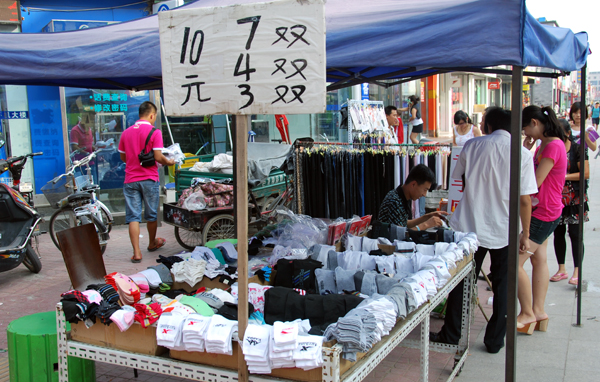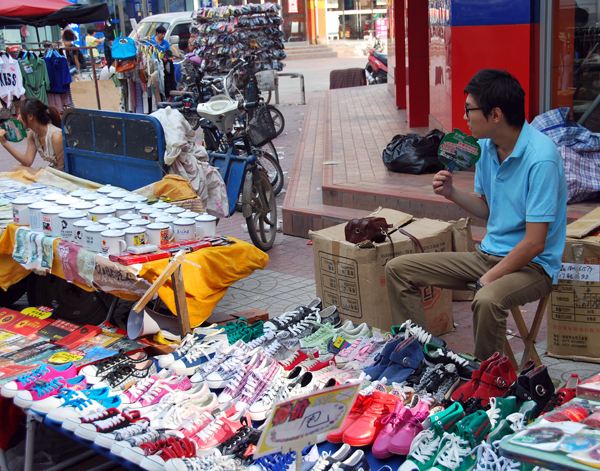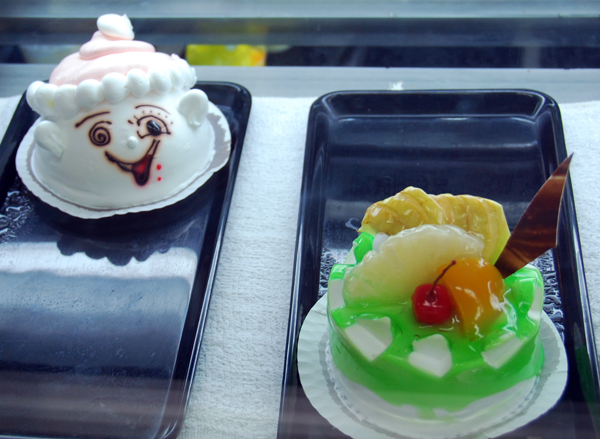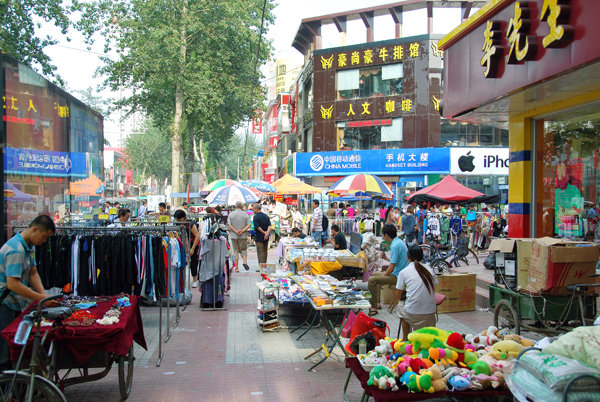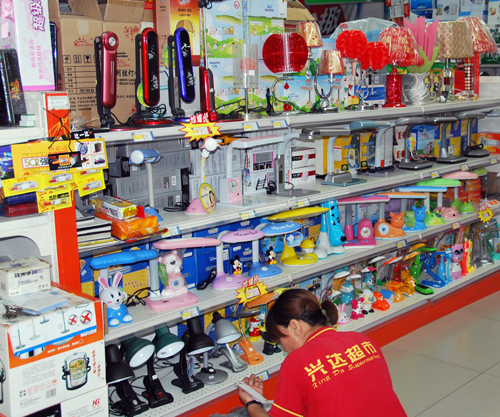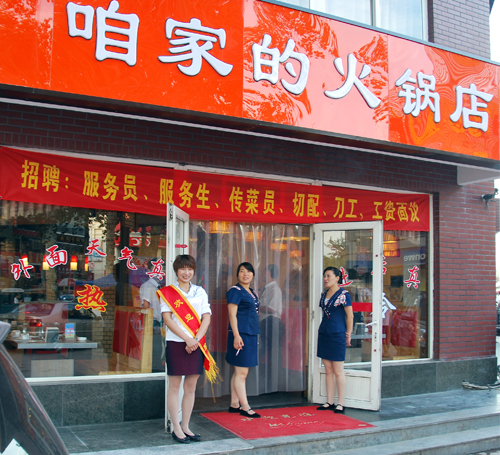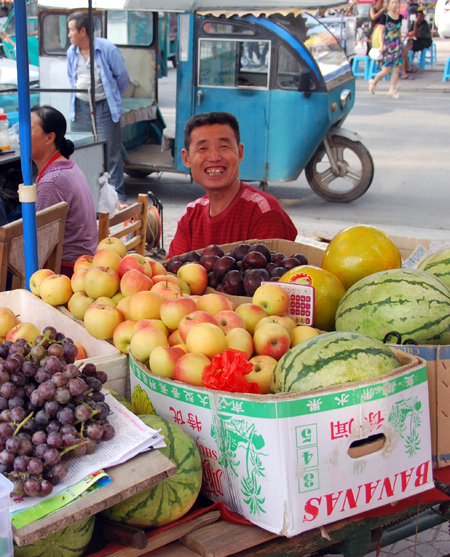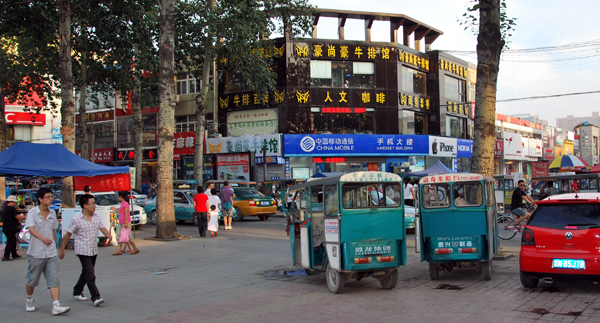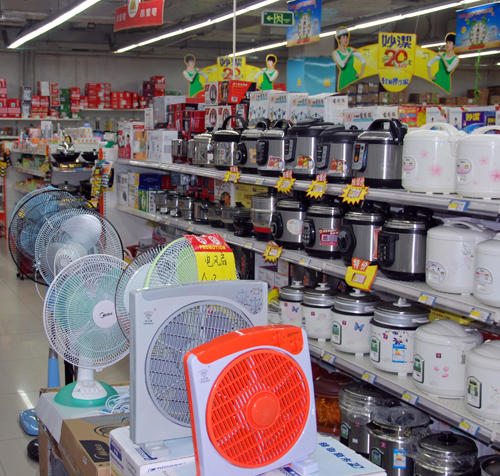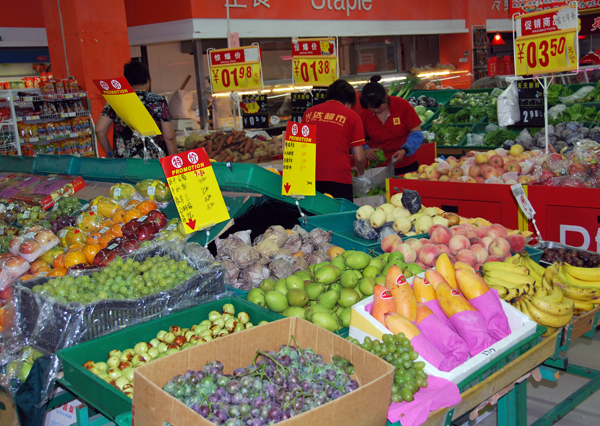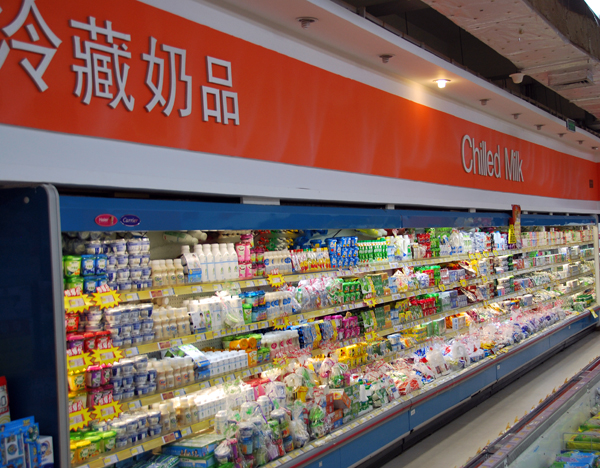Editor’s Note:
I recently received a couple of e-mails (click here to read the screed) about “Buying Canadian” from Catherine Bell and Sue Leach. Sue asked me if I thought a variation on that might make a story for Current Food Editor Leslie Savage and her husband David to pursue while they are in China where Leslie is teaching. Here’s what David has dug up on Chinese nationalist/protectionist consumer attitudes:

BEIJING — Considering the “buy Canada” issue, we wondered — actually it was Sue Leach who wondered first and asked Current Publisher David Rooney to suggest it as a story — if, given that so many of us buy Chinese rather than Canadian, what the score is in China. Do the Chinese buy Chinese?
We’ve been here for four weeks. Asking a number of Chinese people we know whether they deliberately purchased items “made in China , as opposed to things made in foreign countries, we elicited quizzical looks. With one exception, a 29 year old university educated woman, about whom more later. Everyone else, after taking some time to understand the question — and the Chinese take such questions seriously and want to give honest answers — all said no. Price and quality are their main considerations, not where something is made.
Our 29-year-old friend Ting Ting said “No, it doesn’t matter where it’s from.” Then she corrected herself: she always bought Chinese made cell phones and computers. She conceded that the price was her major reason but added she thought they were as good as anybody’s.
Sam, the English-speaking assistant in the English Language Department, who has lived in the US, said, “Well, for us, you know, we often don’t have the money to buy exactly what we might want — we buy what we can afford.” He did say he wasn’t very keen on Japanese products.
And Sally, our University International Office minder, said more or less the same thing. “No, it doesn’t matter, we choose the least expensive one that offers the best quality for the price.” And our friend professor Zhao was emphatic: “Doesn’t matter — we don’t care at all.”
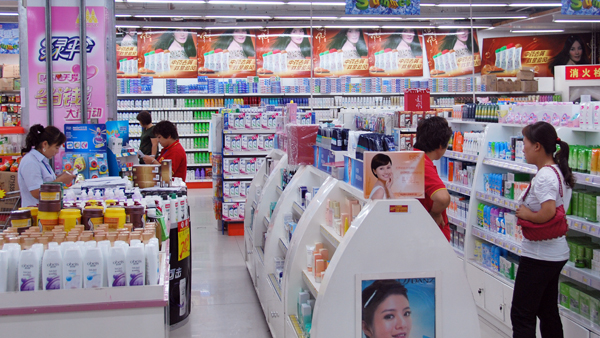
Our small unscientific sample of some eight people ranged from a retired Chinese language professor to a young university student. They all seem to understand the issue: buying locally supports local jobs and minimizes the danger of losing whole industries to a low-cost economy often with lower labour standards and lower environmental regulations. They also understand the danger of the disappearance of whole skill sets, not to mention the tax revenue loss to the government from companies and employees whose products may end up being produced elsewhere. The Chinese central government is on record recently as endorsing the focused growth of domestic consumption of goods earlier destined for export.
China is a huge manufacturing nation, as we all know. Despite the global recession China is still growing at a phenomenal rate, there’s little or no concern among our friends at least, nor in the pages of China Daily, the English language Beijing newspaper we get about four times a week, about China losing jobs to another country.
The other difference, and I think it’s a big one, is that the population has never known the kind of economic progress China has experienced over the past ten years. Whereas it’s tempting to believe “the West” has seen its peak of economic growth under the present system, where we are seeing a growing gap between the poorest and the richest, and where the middle class is being told it must “make sacrifices” to balance the books or bring the so-called deficit under control, in China, by contrast, virtually everyone is better off than they were twenty years ago. Under a “managed economy” a sort of state capitalism, entrepreneurship is being encouraged, all levels of education are receiving more resources, medical health is being bought to more rural areas, and periodic famines seemed to have been wiped out.
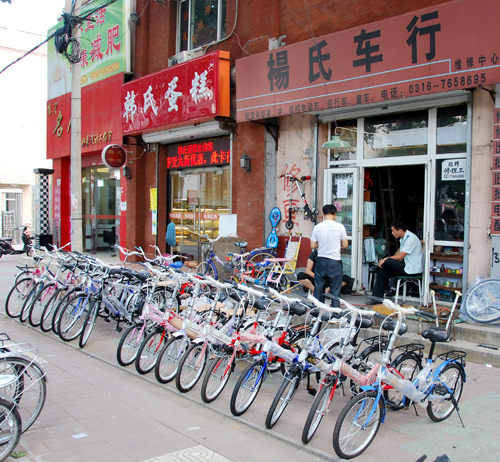
There do loom clouds on the horizon, however, and the Chinese are well aware of these. The problems are serious, and seem to occupy more mental and media space than buying Chinese. A booming economy demands more energy and although China is the biggest maker of solar panels in the world, coal-fired plants are coming on line at a frightening rate. Nuclear plants are also being developed but even in this country where they are capable of tremendous engineering feats, nuclear installations cannot be developed in a matter of a couple of years or any faster than anywhere else. In Canada, a leader in nuclear technology (well, we have been until recently, perhaps) it is estimated ten years are needed to fully implement a nuclear plant to produce optimal power.
Environmental concerns are evident here; the problems are massive and not without extremely difficult solutions. It is claimed that there is a looming threat here in the Beijing area of a very serious water shortage expected within five years. Beijing is surrounded by farmland which requires huge amounts to sustain the farming industry not to mention the population of 20 plus million of people who live here and depend, of course, on potable water.
The massive Three Gorges Dam, recently completed, is already giving serious concerns about the silt build up. The experts are divided about how to tackle this problem and no matter what is finally decided it will entail very huge investments.
Then there are the issues of globalization of business practices, requiring massive change in Chinese culture, the age-old issue of guanxi (the age-old system of bribery, social obligation and social obligation) ditto, social issues from family matters to intellectual property in the telecommunications age. All of these seem more at the forefront of people’s minds than the exhortation to buy Chinese.
The Chinese are a resilient and patient people. Their biggest test is in front of them.
Buying Chinese is the least of them.
David Savage and his wife, Leslie, are currently in Beijing, China. They will return to Revelstoke this autumn
If you’ve ever wondered about life in China, here are a number of scenes from Beijing’s shops and street markets:
